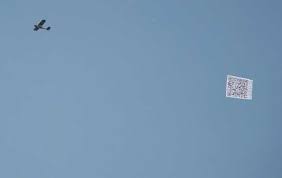A Primer on Use of QR Codes in Marketing
- Steve Gaitten
.jpg/v1/fill/w_320,h_320/file.jpg)
- May 2, 2025
- 3 min read
We first started seeing QR codes back around 2010 when the proliferation of smartphones started hitting full stride. Personally I thought it was a fad that would quickly fade away. But QR codes seemed to become much more important and useful during the COVID pandemic, when not having to touch things like menus made a whole lot more sense.
In 2025, as a digital marketing consultant, I'm fielding more requests for QR codes than ever. Many of these requests are ill-considered and show a lack of understanding about how to best use QR codes. This post is intended as a basic primer for DIY marketers everywhere.
What is a QR Code?
A QR code, short for Quick Response code, is a two-dimensional barcode that stores information in a square grid of black and white pixels. When scanned by a smartphone camera or other device, this information can be accessed and used, such as opening a link, displaying text, or even initiating actions like payment.

What are QR Codes Good For in Marketing?
QR codes are best for creating quick digital links to physical world items. They effectively bridge offline and online experiences in a wide range of applications. Good examples include:
Providing a link from direct mail piece to your website
Providing access to a menu or price list
Providing a link from a real estate sign to information about the property on your website
Add a QR code to your storefront or merchandise
Where QR Codes Don't Make Sense
Within just the past month, I've had a number of requests for QR codes that don't make sense. Examples include:
Including a QR code on a Facebook Business Page Cover photo
Including a QR code on your website
Including a QR code in a marketing email
Why don't these applications make sense?
For websites and emails specifically, QR codes can't be scanned with the same device being used to view them (without additional steps), making them particularly impractical. They also take up valuable screen real estate that could be used more effectively.
Where Can I Get a QR Code?
There are many websites and services that offer QR code generation. Popular sites include:
But be careful! Many of these services want you to pay a significant fee for using QR codes. Some charge to create the codes, some charge every time your code is used. Personally, I find it hard to justify much cost around something that is not much more complex than a hyperlink.
Do People Actually Use QR Codes?
According to a recent study, about 68% of consumers in the U.S. used QR codes at least once during the last year. Among specific demographics, 51% of millennials and 49% of Gen Z consumers use these codes at least once every week.
In general, it feels like people are increasingly comfortable using QR codes. However, the more important question is -- are people using YOUR QR codes?
Tracking is Essential
Is your QR code being used? This is a question you really should be able to answer.
Most services (e.g. bit.ly, QR Code Monkey, ME-QR, etc.) have built in tracking. At any point you can look at a report and see exactly how many times a particular code as been used.
If you have used a free QR code generator, you're probably on your own. To track QR code usage in this scenario, you need to attach a URL to your QR code that includes tracking code. Goolge provides a free Campaign URL Builder for this purpose.

This tool ads "parameters" to the URL you associated with your QR code, that then show up in Google Analtyics, giving you robust information about QR code usage -- AND the behavior of people who use your codes.
Brand or Personalize Your QR Code
Many QR code generators allow you to brand or otherwise customize your QR code. Do this to add some panache to your QR code game.

QR Codes are GREAT -- Use Them!
QR codes are useful. Your clients and customers will love it when you provide QR codes in the right place at the right time. But take a moment and think through your use case before you deploy them. Ask yourself, "Is a user likely to be in a position to scan this code?" and/or "Does this QR code link to something genuinely useful or interesting?"
And like anything in digital... measure, measure, measure!















Comments